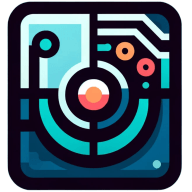How to Learn a New Programming Language Fast: 4 Key Strategies
Unlock the secrets to mastering a new programming language with time-tested strategies and expert insights. This article reveals the key methods that can accelerate the learning process, whether diving into Python or structuring your journey with Rust. Benefit from social learning techniques and practical online courses to enhance your coding skills swiftly.
- Dive Into Python: Focus on Project Goals
- Leverage Social Learning for Rapid Progress
- Master Rust Through Structured Learning
- Learn by Coding: Experiment with Online Courses
Dive Into Python: Focus on Project Goals
Absolutely. A few years ago, a client asked us to take over a project that had been built in Python, which wasn't a language I had used in any serious way. Most of my programming background was in Java and PowerShell. The project had to be up and running within two weeks, so I didn't have the luxury of learning slowly. I set aside focused blocks of time every day to get familiar with Python's syntax and libraries. I started with small scripts, then read through existing code to understand how things were structured.
To get up to speed, I used a mix of online documentation, video tutorials, and open-source examples. Stack Overflow was especially helpful when I got stuck on something specific. I also reached out to a developer on our team who knew Python well. He helped me think through a couple of problems and shared shortcuts that saved me hours. I wasn't afraid to ask questions or admit I didn't know something--that made a big difference.
Looking back, the key was staying focused on the goal: getting the client's system stable and maintainable. I wasn't trying to become a Python expert overnight. I just needed to learn what was necessary to get the job done right. If you're in a similar spot, don't waste time chasing every detail. Start with what's needed, ask for help, and write real code as soon as possible. You'll learn faster when you're solving real problems.

Leverage Social Learning for Rapid Progress
The most effective strategy I've found for learning a new programming language is by learning from friends and colleagues. Obviously, you should learn as much as you can on your own, but when the pace slows or you get stuck, it's helpful to have someone you can consult to get you past that point. We learn much more effectively through social interaction than from reading materials and isolated trial and error. If you have a friend who knows a language you're interested in, you'll likely progress much faster.

Master Rust Through Structured Learning
Recently, I was tasked with a project that required proficiency in Rust, a language known for its safety and performance. Up until that point, my experience had primarily been with Python and Java, so this was a bit of a leap into unfamiliar territory. I started by setting a structured timeline, aiming to grasp the basics within a week and become proficient enough to contribute to the project in a month.
To kickstart my learning, I immersed myself in Rust's rich ecosystem of documentation and community resources. The official Rust book was incredibly helpful, especially the chapters on ownership and concurrency, concepts unique to Rust that were crucial for my project. Moreover, I engaged with the Rust community on forums and Discord channels, where I could ask questions and get immediate advice or clarifications. These real-time interactions not only accelerated my understanding but also helped me network with other Rust developers. By the project's end, I was not only comfortable with Rust but had also substantially improved my overall programming skills.
The key takeaway here is the importance of leveraging both structured resources, like formal documentation, and unstructured resources, like community interactions, when learning something new. This approach not only broadens your understanding but also deepens your practical engagement with the material, making the learning process both efficient and enjoyable.

Learn by Coding: Experiment with Online Courses
I personally prefer finding courses related to new programming languages on online learning platforms like Udemy or Coursera. The most important aspect of learning a new language is to actually code along with the instructor and try to stay ahead by pausing the video and experimenting with the code yourself.
It doesn't matter if you get it wrong initially or don't remember everything right away. Once you start experimenting and coding on your own, you'll gradually remember the syntax over time, and you'll continuously improve at programming in the new language or framework without any external help.


